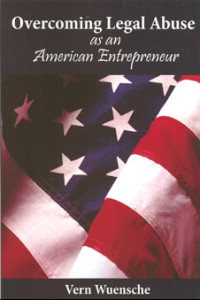1951 (age 6) Raised radishes with the help of mother on parent’s farm. Sold them on consignment at local T. E. Dungan grocery. If sold made 5 cents per bunch; if not nothing.
1953 Picked cotton paid for by the pound for local farmer. First day 106 pounds paid $1.50
1956 Picked dewberries for 5 cents per container. Picked 20 containers per day.
1954—1963 Chopped peanuts, pulled corn, dug septic tanks, dug post holes and other farm labor for nearly all farmers in small town. Started at 45 cents per hour. Raised to 75 cents during high school.
1960—1963 Bred sows to create litters and sold the pigs for $6.00 each. Also raised Hampshire hogs for sale. Maize feed commodity price was $1.70 per hundred. Price changed to $2.00 before delivery. Mother holding vendor to price saved 30 cents per hundred which on the total purchase turned out to be the total profit on the sale of the hogs.
1963 With $400, no parental financial help or loans, entered the University of Texas in Austin. Worked himself through by sacking groceries at Kash Karry Grocery, picking up mail for the U.S. Post Office and helping a survey crew for the Texas Highway Department.
1967 Received BBA in accounting from the University of Texas in Austin.
1968 Received MBA in management from the University of Texas in Austin, graduating first in his class.
1968 Joined Arthur Andersen & Company (CPAs) as an auditor. In first six months noticed that fellow employees were preparing work papers showing completed audit work which they in fact had not completed in any way. After speaking of the dishonesty he was continually humiliated until forced to leave. Many years later he was told that this process had been their corporate policy. Arthur Andersen & Company went bankrupt in 2002.
1969 Joined Peat Marwick Mitchell & Co. (now KPMG) as a tax consultant.
1970—1975 Worked for a series of smaller companies first as a cost accountant for a bag manufacturer, then as assistant controller for an oilfield company, and finally as local controller for several national residential homebuilders.
1975 Received CPA certificate.
1975 Founded Woodmark Homes, Inc. with $6,000 as a builder of customized volume homes.
1980 Spent four years and $14,000 pursuing a dishonest client who had failed to pay him $25,000 for completed work. Settled in court for $14,000. His lawyer charged his company $14,000 leaving the company a net result of zero for its efforts.
1985 Homeowners were not able to sell their personal homes to buy those the company produced so Woodmark developed a program whereby the homeowner would trade their existing home for a new custom home built in the location of the owner’s choice.
1986 Forced to dump thirty homes received in trade but survived the Houston oil depression with oil at $10.00 per barrel by obtaining one remodeling job in Houston, one in Austin and one in Dallas and driving 1,000 miles per week for a year among the cities to save his company.
1990 Custom home client failed to pay the final payment of $30,000 which was Woodmark’s profit and overhead. Two years later client went to the District Attorney and charged Vern with theft?? Vern faced a grand jury. Despite it being well known that any prosecutor “can indict a ham sandwich” he was no-billed and cleared by a grand jury despite the best efforts of the assistant district attorney to indict him.
1991 to 2018 Multiple dishonest clients failed to pay which regularly wiped out capital accumulated to grow the business. There was never a question about product quality. An analysis of these dishonest clients showed that they did not in any small way understand or appreciate the free enterprise system. Periodic dishonesty in a business without a cost-effective legal system in place was a problem continually faced by Woodmark.
2002 Lawyer-client failed to pay final payment to Woodmark, a corporation. Woodmark filed very rare lien on their home but did not execute it. Client sued Vern individually. Vern’s lawyer despite instructions given to him otherwise failed to address this. Client received judgment against Vern, individually. Fourteen years later after statute of limitations had passed Vern received notice from lawyer-client directing the constable to immediately seize Vern’s personal property. Vern was forced to borrow funds and pay former client $50,000 to settle.
2002 Defended himself in District Court as a pro se lawyer against a lawyer-developer who without ownership had built seven homes on his and his brother’s inherited land which had been deeded to their ancestors by Sam Houston. Although Vern’s performance was respected by the opposing lawyer and the judge, the land remarkably was lost. The visiting judge–chosen by his opponents–had among a number of questionable practices during the trial, removed the jury from the room and with no basis issued a directed verdict eliminating the developer from the case. Additional Wuensche land not included in the case was also subsequently given to the developer after the final verdict. Details of the case are presented in a book by Vern: Overcoming Legal Abuse as an American Entrepreneur.
1994 to 2018 Woodmark Kitchen and Bath, Inc. designed and built kitchens and baths in middle and upper-end homes to client’s specific requests. Testimonial comments and letters.
2008 to 2016 Obama election and reelection resulted in no revenue growth and lower margins for his business which nevertheless became Houston’s oldest building and remodeling company–in business for 43 years.
2018 Discontinued taking contracts for his business in order focus more on political pursuits.

